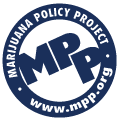|
We Update Daily!
 Custom Search Custom Search
Chris S. Kenoyer. Owner
MMJ Patient, Medical Activist,
Online Patients Advocate,
Online MMJ News Journalist
My Medical Bio
Follow Us Now On Twitter
@MedicalMMJMan
Or Follow Us Now
On Facebook
Email Us Here
olpwebs@yahoo.com
Or Email Us Securely Here
MedicalMMJMan@countermail.com
NEW 100% Encrypted Email Server
OLP’s Free MMJ News EList
Get The Latest In MMJ News
Press Contact Info
Is CBD? A Possible Cure For
Breast Cancer..? And All The Other
Many Forms & Types Of Cancer..?
Learn More About CBD Here
***************************
Advertise Here On OnlinePot
Rates As Low As $50 a Year
24/7 – 365 Days A Year Of Sales!
***********************************
Website Navigational Links
Main Start Page 2
**************************
Latest Marijuana News Reports
*********************************
Parody’s Cartoons US
Government Grown Pot,
Term Papers, School
Reports, & Thesis’s On
Marijuana & Cannabis
*********************************
Amsterdam A to Z
********************************
Canadian Marijuana Websites
*******************************
Church’s & Pot Cannabis
*****************************
Co-Ops, Clinics, Dispensary’s
*****************************
Marijuana Doctors & Clinics
****************************
Pot Cooking Recipes
****************************
Drug Testing A To Z
***************************
Pot Games
****************************
Pot Songs Video’s
****************************
100’s Of Grow Guides
***************************
Hash A- Z
***************************
Cannabis Legal Info, Drug
Lawyers, State, Federal Laws,
State & Supreme Court Rulings
**********************
POW’s Of The MMJ War!
*****************************
Other Marijuana Websites
Reciprocal Link Exchange
****************************
Medical Marijuana Studies,
Research Report’s, Medical
Cannabis Clinic Study’s
****************************
Parody’s & Cartoons
When We All Need A Good Laugh!
****************************
Avoiding Online MOM Scammers
Newly Re-Updated Info!
*****************************
The Politics Of Contraband
Medical Marijuana In The Mail?
******************************
The Hall Of Shame Section
The Online MOM Scammers
*****************************
Online MOM Providers Ads
****************************
Politicians & Voters Rights
****************************
Medical Marijuana, Strains
****************************
The OG Marijuana Strain Guide
****************************
800+ FAQ Growing Questions
****************************
Patients Spiritual Guidance,
Free Online Crisis Help Center
****************************
Online Marijuana Seed Banks
****************************
Maximum Security Section
Just Updated!
*****************************
Traveling Tips, Guides, B & B’s
****************************
Vaporizers A To Z
*****************************
Online Pot Video’s & Movies
**********************************************
Please Visit Both Of Our Sister Websites!
Maine Patients Coalition.org
The Reefer Madness Teaching Museum.org
Listen Right Here Online!
To Original 1930-1950’s
Reefer Madness Propaganda
Radio Shows And Programs
Before TV There Were
"Radio Stars"



*********************************
Legal Disclaimer
Guest Book
Translate Text or Web Page Go To:
Language Tools Google Translations
Article Submissions & News
Reports Are Always Gladly
Accepted Here.

No part of this site maybe used or
reproduced in whole or in part
without the written consent of the
Copyright Owner
www.onlinepot.org
OLP ENTERPRISES L3C
1999-2014 Copyright
© All rights reserved
OnlinePot assumes no legal liability for any products, or information or
news posted, services offered, Or
any contests or give away’s offered.
|
|
Editorial: Wasted – The American Prohibition
on Thinking Smart in the Drug War
THE AMERICAN PROHIBITION ON THINKING SMART IN THE DRUG
WAR The Washington consensus on drugs rests on two widely shared beliefs.
The first is that the war on drugs is a failure. The second is that it cannot be changed.
Return To OnlinePot’s Legal Section Main Page
Americans are a can-do people.
They tend to believe that if something does not work, it needs to be fixed.
Unless, that is, they are talking about the war on drugs.
On this politically fraught issue, Washington’s elites and, indeed, the majority of the population, believe two contradictory things.
First, 76 percent of Americans think the war on drugs launched in 1971 by President Richard Nixon has failed.
Yet only 19 percent believe the central focus of antidrug efforts should be shifted from interdiction and incarceration to treatment and education.
A full 73 percent of Americans are against legalizing any kind of drugs, and 60 percent oppose legalizing marijuana.
This “it doesn’t work, but don’t change it” incongruity is not just a quirk of the U.S. public.
It is a manifestation of how the prohibition on drugs has led to a prohibition on rational thought. “Most of my colleagues know that the war on drugs is bankrupt,” a U.S. senator told me, “but for many of us, supporting any form of decriminalization of drugs has long been politically suicidal.”
As a result of this utter failure to think, the United States today is both the world’s largest importer of illicit drugs and the world’s largest exporter of bad drug policy.
The U.S. government expects, indeed demands, that its allies adopt its goals and methods and actively collaborate with U.S. drug-fighting agencies.
This expectation is one of the few areas of rigorous continuity in U.S. foreign policy over the last three decades.
A second, and more damaging, effect comes from the U.S. emphasis on curtailing the supply abroad rather than lowering the demand at home. The consequence: a transfer of power from governments to criminals in a growing number of countries.
In many places, narcotraffickers are the major source of jobs, economic opportunity, and money for elections.
The global economic crisis will only intensify these trends as battered economies shrink and illicit trade becomes the only way for millions of people to make a living.
Mexico’s attorney general reckons that U.S. consumers buy $10 billion worth of drugs from his country’s cartels each year, a business that propelled Joaquin “El Chapo” Guzman Loera, the leader of the Sinaloa cartel, to Forbes magazine’s latest list of the world’s billionaires. According to the U.S. Department of Defense, all that money allows the two main cartels to train, equip, and pay for a highly motivated army of 100,000 that almost equals Mexico’s armed forces in size and often outguns them. And this ascendancy of the drug cartels is a global problem.
The opium trade is equal to 30 percent of Afghanistan’s legal economy, and from Burma to Bolivia, Moldova to Guinea-Bissau, drug kingpins have become influential economic and political actors.
Fortunately, there are some signs that the blind support for prohibition is beginning to wane among key Washington elites.
One surprising new convert? The Pentagon. Senior U.S. military officers know both that the war on drugs is bankrupt and that it is undermining their ability to succeed in other important missions, such as winning the war in Afghanistan. When Gen. James L. Jones, a former Marine Corps commandant and supreme allied commander in Europe, was asked last November why the United States was losing in Afghanistan, he answered: “The top of my list is the drugs and narcotics, which are, without question, the economic engine that fuels the resurgent Taliban, and the crime and corruption in the country. . . . We couldn’t even talk about that in 2006 when I was there.
That was not a topic that anybody wanted to talk about, including the U.S.” Jones is now U.S. President Barack Obama’s national security advisor.
But such views have set off fierce clashes between military commanders newly focused on creating peaceful economic opportunities for Afghan families and the U.S. drug warriors set on eradicating Afghanistan’s major cash crop at any cost. What’s more, inertia alone almost guarantees strong support for drug eradication from the massive bureaucracy that lives off the tens of billions of taxpayer dollars that have funded the war on drugs for decades.
The opinions of these drug warriors are immune to data: After decades of eradication efforts around the world, neither the acreage of land used to grow drugs nor the tonnage produced has shrunk.
But prohibition at any cost is becoming increasingly hard to defend.
As the drug-fueled escalation of violence in Mexico spills across the border into the United States, the American public’s willingness to ignore or tolerate policies that don’t work is bound to decline.
And the consequences of failure are already on mounting display: According to the U.S. National Drug Intelligence Center, Mexican drug cartels have established operations in 195 American cities.
It is much harder to ignore the collateral damage of the war on drugs when it happens in your neighborhood.
That is the case in many other countries where the nefarious side effects of U.S. drug policies have long been felt. Three of Latin America’s most respected former presidents, Brazil’s Fernando Henrique Cardoso, Colombia’s Cesar Gaviria, and Mexico’s Ernesto Zedillo, recently chaired a commission that came out in favor of drastic changes in the war on drugs-including decriminalization of marijuana for personal use. The commission, on which I sat, spent more than a year reviewing the best available evidence from experts in public health, medicine, law enforcement, the military, and the economics of drug trafficking. One of the commission’s main conclusions is that governments urgently need options beyond eradication, interdiction, criminalization, and incarceration to limit the social consequences of drugs. But though smart thinkers increasingly propose confronting the drug curse as a public health crisis-more options are in the commission’s report at www.drugsanddemocracy.org – real alternatives have found no space in a policy debate stalemated between absolute prohibition and wholesale legalization.
The addiction to a failed policy has long been fueled by the self-interest of a relatively small prohibitionist community-and enabled by the distraction of the American public.
But as the costs of the drug war spread from remote countries and U.S. inner cities to the rest of society, spending more to cure and prevent than to eradicate and incarcerate will become a much more obvious idea. Smarter thinking on drugs? That should be the real no-brainer.
Pubdate: Fri, 1 May 2009
Issue: May/June 2009
Source: Foreign Policy (US)
Copyright: 2009 Foreign Policy
Author: Moises Naim
Note: Moises Naim is editor in chief of Foreign Policy.
WASTED
|



 Button Ads!
Button Ads! 




